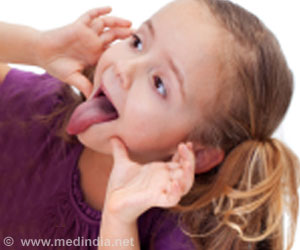According to a study nine out of 10 young children with moderate to severe ADHD continue to experience serious, often severe symptoms and impairment long after their original diagnoses.

Children with ADHD, ages 3 to 5, were enrolled in the study, treated for several months, after which they were referred to community pediatricians for ongoing care. Over the next six years, the researchers used detailed reports from parents and teachers to track the children's behavior, school performance and the frequency and severity of three of ADHD's hallmark symptoms—inattention, hyperactivity and impulsivity. The children also had full diagnostic workups by the study's clinicians at the beginning, halfway through and at the end of the research.
Symptom severity scores did not differ significantly between the more than two-thirds of children on medication and those off medication, the study showed. Specifically, 62 percent of children taking anti-ADHD drugs had clinically significant hyperactivity and impulsivity, compared with 58 percent of those not taking medicines. And 65 percent of children on medication had clinically significant inattention, compared with 62 percent of their medication-free counterparts. The investigators caution that it remains unclear whether the lack of medication effectiveness was due to suboptimal drug choice or dosage, poor adherence, medication ineffectiveness per se or some other reason.
"Our study was not designed to answer these questions, but whatever the reason may be, it is worrisome that children with ADHD, even when treated with medication, continue to experience symptoms, and what we need to find out is why that is and how we can do better," Riddle says.Children who had oppositional defiant disorder or conduct disorder in addition to ADHD were 30 percent more likely to experience persistent ADHD symptoms six years after diagnosis, compared with children whose sole diagnosis was ADHD.ADHD is considered a neurobehavioral condition and is marked by inability to concentrate, restlessness, hyperactivity and impulsive behavior. It can have profound and long-lasting effects on a child's intellectual and emotional development, Riddle says. It can impair learning, academic performance, peer and family relationships and even physical safety. Past research has found that children with ADHD are at higher risk for injuries and hospitalizations. More than 7 percent of U.S. children are currently treated for ADHD, the investigators say. The annual economic burden of the condition is estimated to be between $36 billion and $52 billion, according to researchers.
Source-Eurekalert
 MEDINDIA
MEDINDIA




 Email
Email










